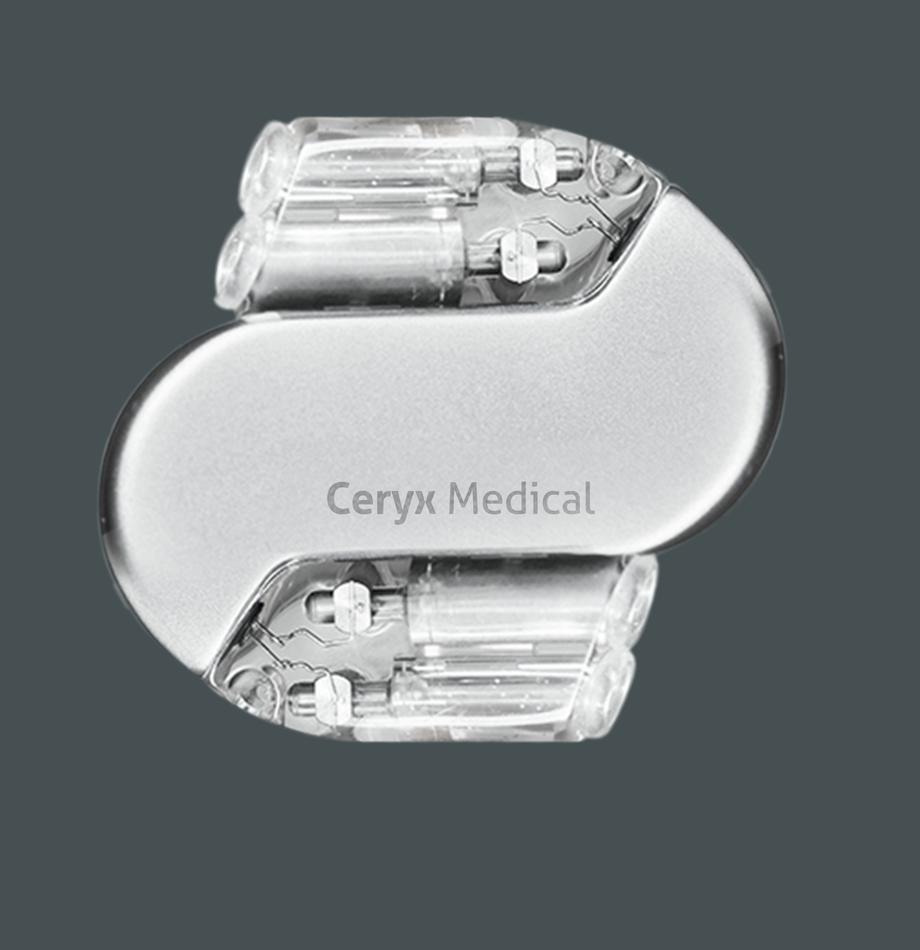Ceryx Medical raises £3.8m to bring cardiac device to in-human trials
Ceryx Medical, a Cardiff-based healthtech start-up developing bioelectronic technology that can mimic nerve centres to control a range of autonomic or rhythmical processes in the human body, has raised £3.8m in seed funding.
The new funding, involving Icehouse Ventures, The Development Bank of Wales, Parkwalk Advisors, Business Growth Fund and a consortium of Angel investors, will be used to commercialise its unique cardiology technology and commence the first-in-human clinical study of Ceryx’s innovative cardiac rhythm management device, Cysoni, later this year. Cysoni is a bionic device that paces the heart with real-time respiratory modulation. It replicates the natural interaction between heart rate and breathing, prompting the heart to beat as its user breathes, as opposed to the strict ‘metronomic’ beat generated by traditional pacemakers. Cysoni’s ability to listen and respond to the body in this way is a real step forward in the treatment of patients with serious heart conditions.
Dr Stuart Plant, CEO of Ceryx explained: “Our studies have found that Cysoni’s way of pacing the heart increased cardiac output by 20%, when compared with monotonic pacing. The benefits of this for cardiology patients are potentially life-changing and life-extending, because as well as enabling the heart to work more efficiently, Cysoni also repairs the structure of single heart cells. It’s a huge scientific breakthrough.”
Of the 26 million heart failure patients worldwide, around 50% die within five years of diagnosis. It’s a statistic Stuart and his team aim to change, with global use of Cysoni their target over the next five to ten years.
“All the signs point to Cysoni being capable of not only making daily life better for those with heart problems, but also of improving the prognosis for even the most seriously ill cardiology patients,” said Stuart. “This latest round of funding will enable us to develop our technology for human use and embark on the next phrase of rigorous testing.”
The Ceryx team, alongside scientists from the Universities of Auckland, Bath and Bristol, aims to begin in-human trials in the UK and New Zealand in the final quarter of 2022.
Stuart explained: “Cysoni will eventually be an implantable device, but for the purpose of the in-human trials we’ll use an external pacemaker device, loaded with Cysoni technology, to pace the hearts of patients with heart failure who have undergone a coronary artery bypass. Normally these patients receive pacing for a few hours after surgery and pacing is then removed. We will pace post-surgery for the whole time they remain in hospital, so we’ll build a really good picture of what Cysoni can do. If patients respond in the same way as our preclinical models, we should see significant improvements in their cardiac performance, which we’re confident will translate to improved outcomes.”


